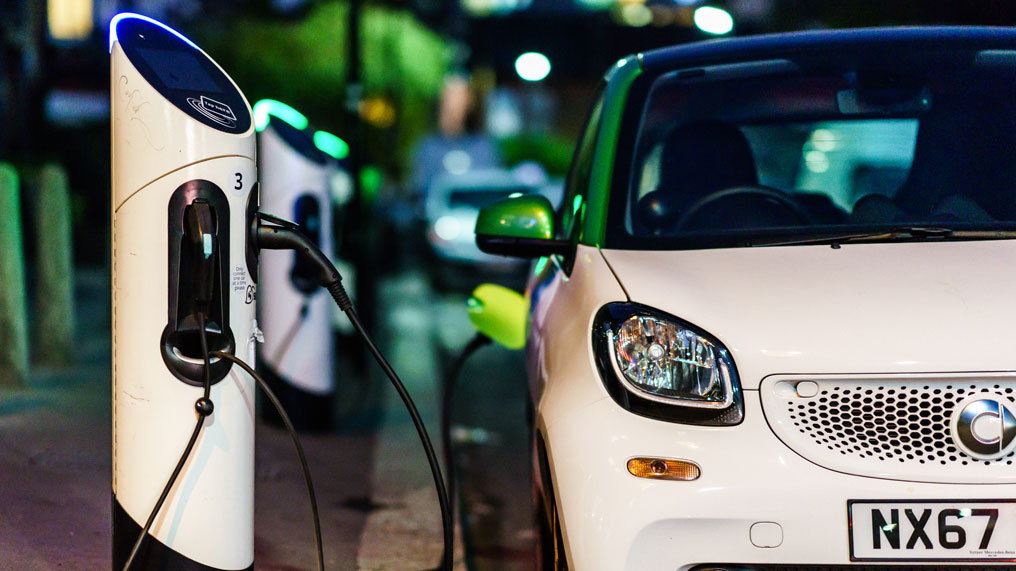Electric vehicles (EVs) are no longer a futuristic concept — they’re the present and the future of transportation. With major automakers like Tesla, Ford, Hyundai, and Volkswagen investing heavily in electric technology, the number of EVs on the road is growing rapidly.
But while electric cars are known for being eco-friendly and cost-efficient, many drivers are still unsure how EV insurance works.
This guide explains everything you need to know about insurance for electric vehicles in 2025 — including how it differs from gas car insurance, how much it costs, what factors affect your premium, and how to save money without compromising coverage.
Why Electric Vehicle Insurance Matters
Electric vehicles require specialized parts, high-voltage batteries, and advanced onboard technology. Because of this, insuring an EV can be more complex and sometimes more expensive than insuring a traditional gas-powered car.
EV insurance isn’t just mandatory by law — it’s essential for protecting your investment. Whether you drive a Tesla Model Y, Ford F-150 Lightning, or Hyundai Ioniq 6, your policy should cover both common risks (like accidents or theft) and EV-specific issues such as battery damage or charging equipment loss.
How EV Insurance Differs from Regular Car Insurance
At its core, EV insurance works similarly to traditional auto insurance — covering liability, collision, and comprehensive risks. However, there are several key differences worth noting:
| Feature | Gas-Powered Cars | Electric Vehicles |
|---|---|---|
| Repair Costs | Lower, common parts | Higher due to specialized components |
| Battery Coverage | Not applicable | Often included or optional |
| Charging Equipment | Not required | May require additional coverage |
| Roadside Assistance | Common | May include EV-specific services like mobile charging |
| Replacement Cost | Based on market value | Can be higher due to EV technology depreciation |
Some insurers now offer EV-specific policies that include coverage for battery packs, home charging stations, and even towing to charging points — features that were rarely seen just a few years ago.
How Much Does EV Insurance Cost in 2025?
Insurance rates depend on your location, driving record, vehicle model, and coverage level. However, data from U.S. and U.K. insurers suggest that EV insurance costs 15–25% more on average than equivalent gasoline cars.
Average annual premiums (2025 estimates):
- Tesla Model 3: $1,950 – $2,400 per year
- Hyundai Kona Electric: $1,600 – $2,000 per year
- Ford F-150 Lightning: $2,100 – $2,700 per year
- Nissan Leaf: $1,400 – $1,800 per year
In the U.K., the average EV policy costs around £950–£1,200 annually, slightly higher than traditional cars but expected to drop as EV repair networks expand.
What’s Covered in an EV Insurance Policy
A comprehensive EV insurance plan should include all the standard coverages — and a few extras:
Standard Coverage
- Liability Coverage: Pays for damage or injuries you cause to others.
- Collision Coverage: Covers repair costs after a crash, regardless of fault.
- Comprehensive Coverage: Protects against theft, fire, natural disasters, and vandalism.
- Personal Injury Protection (PIP): Covers medical expenses for you and passengers.
EV-Specific Coverage
- Battery Protection: The battery is one of the most expensive parts of an EV, costing up to $15,000 to replace. Good policies cover battery damage due to accidents, fire, or electrical malfunction.
- Charging Equipment Coverage: Includes home charging units and cables against theft or damage.
- Software & Firmware Protection: Some insurers now extend coverage for digital system failures or hacking incidents.
- Roadside Assistance for EVs: Includes towing to the nearest charging point or mobile battery support.
Always review whether battery degradation or wear-and-tear issues are covered — most standard warranties, not insurance, handle those cases.
Why Electric Car Insurance Is Often More Expensive
- High Repair Costs – Replacing EV components like lithium-ion batteries or sensors costs more than repairing combustion engines.
- Limited Repair Facilities – Not every repair shop is certified to handle EVs, which reduces competition and increases service costs.
- Higher Vehicle Values – Many EVs are still priced higher than equivalent gasoline cars, so total loss payouts are higher.
- Specialized Training & Equipment – Insurers must work with mechanics trained in high-voltage systems, adding to claim expenses.
- Battery Replacement Risks – Even minor damage to the battery pack can require full replacement, leading to larger claims.
That said, as EV technology matures and more certified repair centers open, insurance costs are expected to gradually decrease over the next few years.
How to Lower Your EV Insurance Premium
Even though EVs can be pricier to insure, there are many ways to reduce your costs:
- Compare Multiple Quotes: Use comparison platforms like CompareTheMarket (UK) or The Zebra (US) to compare EV-specific insurance rates.
- Bundle Policies: Combine your EV insurance with home, renters, or life insurance to qualify for multi-policy discounts.
- Install Anti-Theft Devices: EVs often use smart locks and GPS systems — ensure your insurer knows about these features for potential discounts.
- Take a Defensive Driving Course: Completing a certified driver safety course can lower your rate by 5–10% with some insurers.
- Increase Your Deductible: A higher deductible reduces your premium — just ensure it’s an amount you can comfortably pay if needed.
- Ask About Green Discounts: Some insurers offer eco-vehicle discounts for driving an EV or hybrid model due to reduced emissions.
Insurance for EV Charging Stations and Accessories
Home and public charging equipment is a new area of concern for EV owners. Typical homeowners’ insurance might not automatically cover damage to a wall charger.
That’s why it’s important to:
- Inform your insurer when installing a Level 2 home charger.
- Confirm that your EV policy or homeowner’s policy includes charging station coverage.
- Check if your public charging liability is covered in case an incident occurs while using third-party stations.
EV Insurance Trends in the US & UK
United States
- More states (like California and New York) are offering EV rebates and green insurance incentives.
- Major insurers like Progressive, GEICO, and State Farm now have dedicated EV insurance products.
- Data-driven premiums using telematics are becoming common — rewarding careful drivers with lower rates.
United Kingdom
- The U.K. government’s Road to Zero policy is accelerating EV adoption, and insurers are responding with special EV tariffs.
- Companies such as Direct Line and LV= Insurance now offer battery-specific warranties.
- Insurers are partnering with automakers for built-in coverage at the point of sale — especially for leasing deals.
Choosing the Right EV Insurance Provider
When comparing providers, consider:
| Criteria | Why It Matters |
|---|---|
| EV Experience | Choose companies familiar with EVs and battery claims. |
| Repair Network | Ensure certified EV repair shops are included. |
| Battery Replacement Terms | Some cover partial value only; others cover full replacement. |
| Roadside Assistance Options | EV-specific towing or charging services are crucial. |
| Claim Process & Reviews | Check Trustpilot or Google Reviews for response speed. |
Popular EV-friendly insurers include Allstate, GEICO, Progressive, LV=, Admiral, and Aviva.
Conclusion
Owning an electric vehicle brings exciting advantages — cleaner energy, lower maintenance, and advanced driving features. But protecting that investment requires a deep understanding of EV-specific insurance.
When shopping for a policy, always:
- Compare multiple quotes.
- Look for battery and charger coverage.
- Check the insurer’s EV expertise.
- Ask about green or telematics discounts.
A well-chosen policy ensures your electric car — and your wallet — are equally protected as you drive into the future of sustainable mobility.






